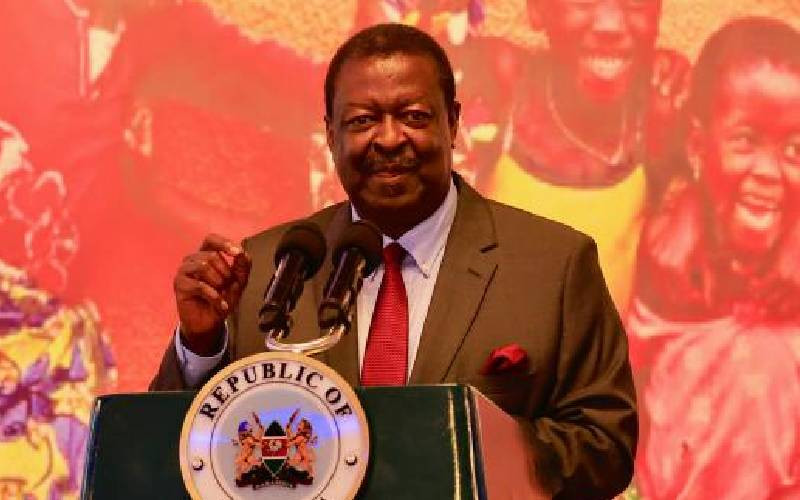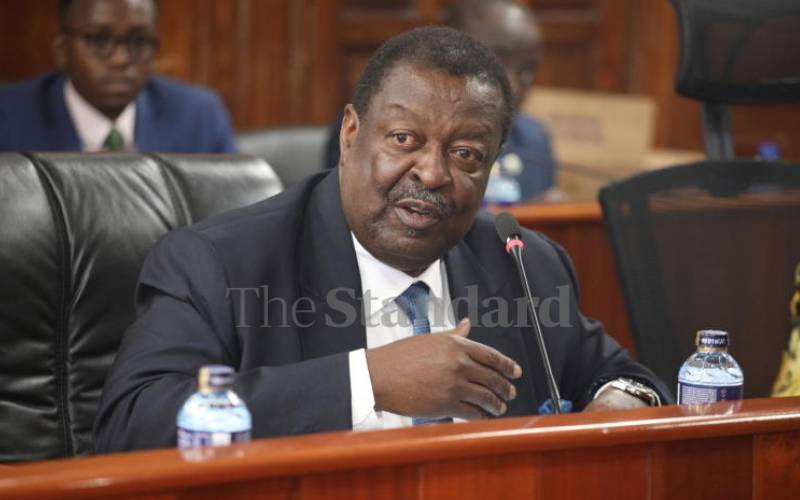NAIROBI: As an Opposition leader, President Uhuru Kenyatta once dismissed former President Kibaki as a “see nothing, hear nothing, and do nothing president.” Given recent goings on in his administration, the same can be said about President Kenyatta. Just last weekend he sounded singularly out of touch with his comment that the economy is OK, despite overwhelming public sentiment to the contrary.
But in many ways the President was right. We are growing at above 5 per cent. Inflation is below 7 per cent. Our debt servicing remains a healthy 2.6 per cent of GDP and is projected to get lower in the medium term. Our debt-to-GDP ratio, while at 53 per cent, is also projected to reduce in the next few years. Even the performance of the shilling against the dollar does not look that bad relative to other emerging and frontier market currencies. And lastly, our forex reserves at the Central Bank amount to over three months of import cover, well within conventionally accepted “safe” levels. The overall point here is that to understand movements in macroeconomic indicators we must put things in perspective. And that requires an appreciation of trends in the global economy as well as the performance of our peer economies.
As I argued last week, the fundamentals of the economy look good on paper and in reality. And this is what the President was referring to when he said the economy is doing OK.
However, this rather wonky look on matters made the President seem aloof and disconnected from public sentiment. All the public really knows and feels about the economy is that the government is “borrowing too much” and “wasting it on corruption.” The accounting missteps at the Treasury that produced the so-called cash-crunch have not helped matters. Compounding these headline grabbing items has been the slow-down in the economic growth rate. The fact of the matter is that the economy needs to grow at an 8 per cent plus clip for the mwananchi to feel the change. Five percent growth -- most of it driven by investments in infrastructure – will not immediately increase the number of sufurias in Wanjiku’s kitchen. This calls for better messaging about long-term prospects of the economy, while at the same time hammering home the fact that the economy is on the right footing today.
It also goes without saying that if the President is to get his message across to Wanjiku he must rein in corruption in the public sector.
Corruption alone does not inhibit development. Very few countries are as astronomically corrupt as was the case in Zaire under Mobutu, or the Philippines under Marcos. For most countries, corruption tends to be a nuisance, rather than the key inhibitor of growth. It increases the cost of doing business, without completely blocking the conduct of business. Furthermore, the type of corruption matters. Some countries are centrally corrupt while others have decentralised corruption. The former case tends to be more conducive to faster growth. When corruption is centralised everyone knows the price of getting things done. Predictability is key for doing business. Corruption in Kenya is decentralised. This tells us a lot about the President.
First of all, he inherited a public service steeped in the culture of corruption. Before Anglo-Leasing there was Goldenberg. And before Goldenberg there were land-buying companies with fictitious accounts. So the President did not invent this act. At the same time, being a politician, his hands are somewhat tied. We tend to imagine all the President has to do is fire a Cabinet Secretary and things will be fine. What we don’t appreciate is the fact that a great deal of corruption in the public sector is run by individuals you do not see in the media – the entrenched members of the bureaucracy and interests in the private sector who finance political campaigns.
The President cannot fire all the bureaucrats. The symbiotic relationships between politicians and their financiers in the private sector must be nourished. And so we are in a fix. Getting out of this fix will demand a clear-headed approach to organisational reform (targeting the bureaucracy) as well as a political reform of how we finance campaigns.
Second, it says a lot about the President that corruption in Kenya is decentralised. By all indications the President is not personally corrupt. His biggest weakness is that he delegates too much to unscrupulous individuals. The political challenge for those of us who want to see real reforms is to come up with ways to provide the President with political cover so he can deal with his corrupt lieutenants. Again, hiding from this political fact will only lead to failure.
 The Standard Group Plc is a
multi-media organization with investments in media platforms spanning newspaper
print operations, television, radio broadcasting, digital and online services. The
Standard Group is recognized as a leading multi-media house in Kenya with a key
influence in matters of national and international interest.
The Standard Group Plc is a
multi-media organization with investments in media platforms spanning newspaper
print operations, television, radio broadcasting, digital and online services. The
Standard Group is recognized as a leading multi-media house in Kenya with a key
influence in matters of national and international interest.
 The Standard Group Plc is a
multi-media organization with investments in media platforms spanning newspaper
print operations, television, radio broadcasting, digital and online services. The
Standard Group is recognized as a leading multi-media house in Kenya with a key
influence in matters of national and international interest.
The Standard Group Plc is a
multi-media organization with investments in media platforms spanning newspaper
print operations, television, radio broadcasting, digital and online services. The
Standard Group is recognized as a leading multi-media house in Kenya with a key
influence in matters of national and international interest.









